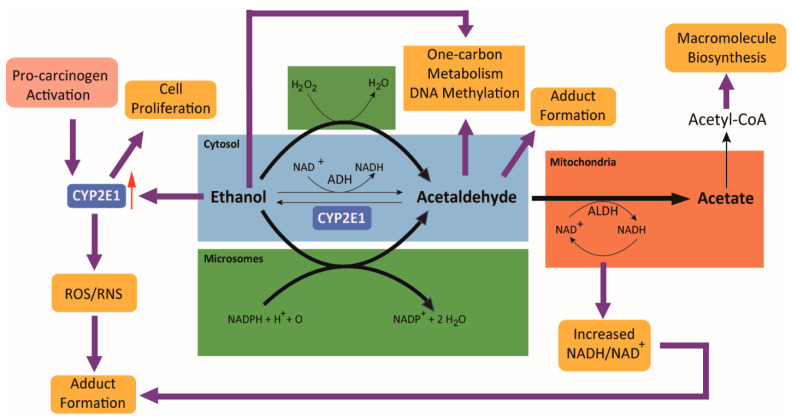Figure 1.
Role of ethanol and its metabolism in colorectal carcinogenesis. Ethanol is metabolized to acetaldehyde by alcohol dehydrogenase (ADH), cytochrome P4502E1 (CYP2E1), and catalase. Acetaldehyde is oxidized further to acetate primarily by acetaldehyde dehydrogenases (ALDHs). Acetaldehyde promotes the generation of reactive oxygen species (ROS)/reactive nitrogen species (RNS) and the formation of DNA and protein adducts, which contribute to the initiation and growth of colorectal cancer. It also modulates one-carbon metabolism and affects DNA methylation. Acetate contributes to the pool of acetyl CoA in hypoxic cancer cells and thereby sustains the synthesis of macromolecules required for cancer growth. Ethanol oxidation by CYP2E1 generates ROS/RNS and thus increases the production of DNA and protein adducts. Red arrow indicates the induction of CYP2E1 expression by ethanol and the activation of procarcinogens. Adapted from [16].

